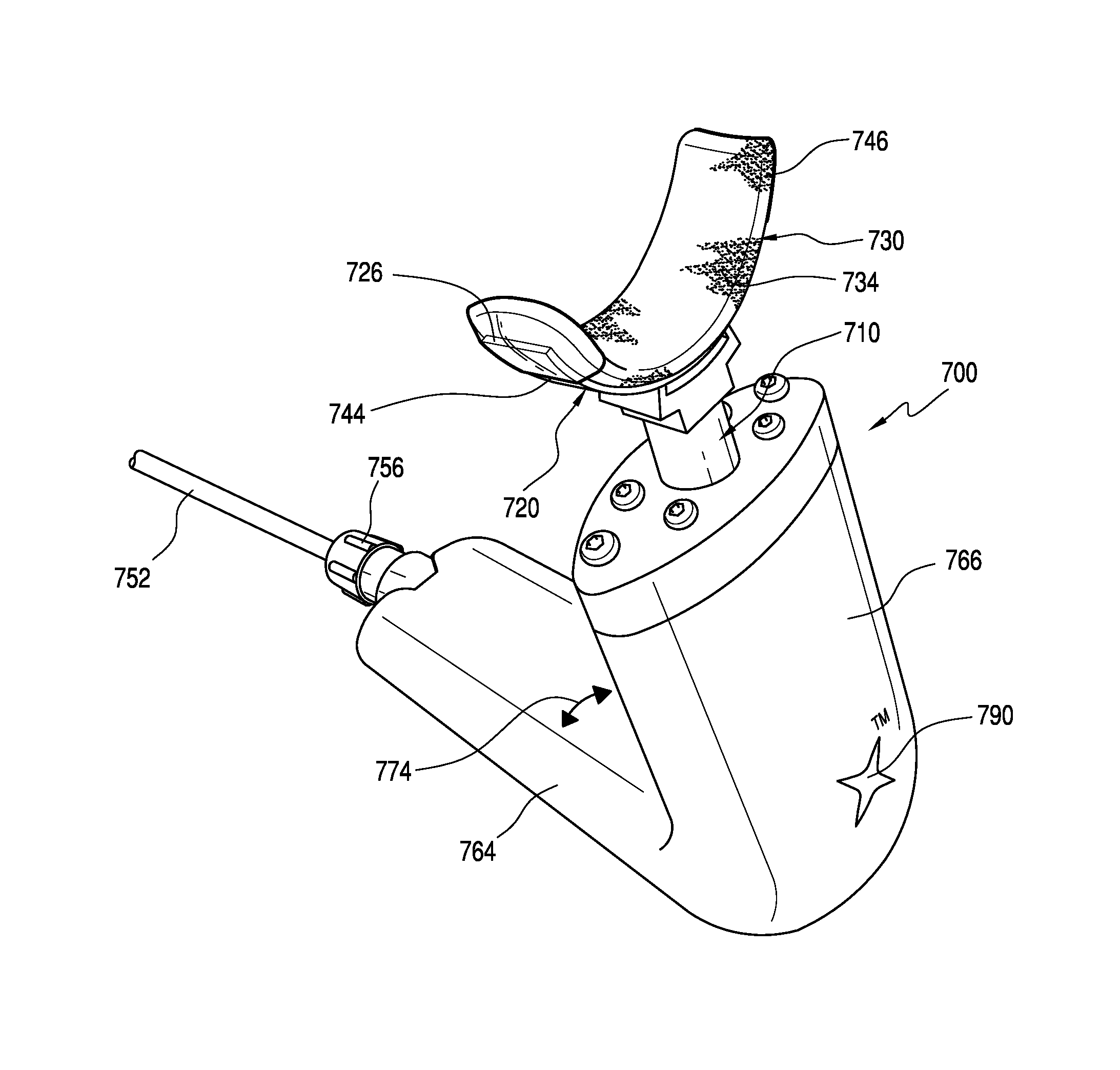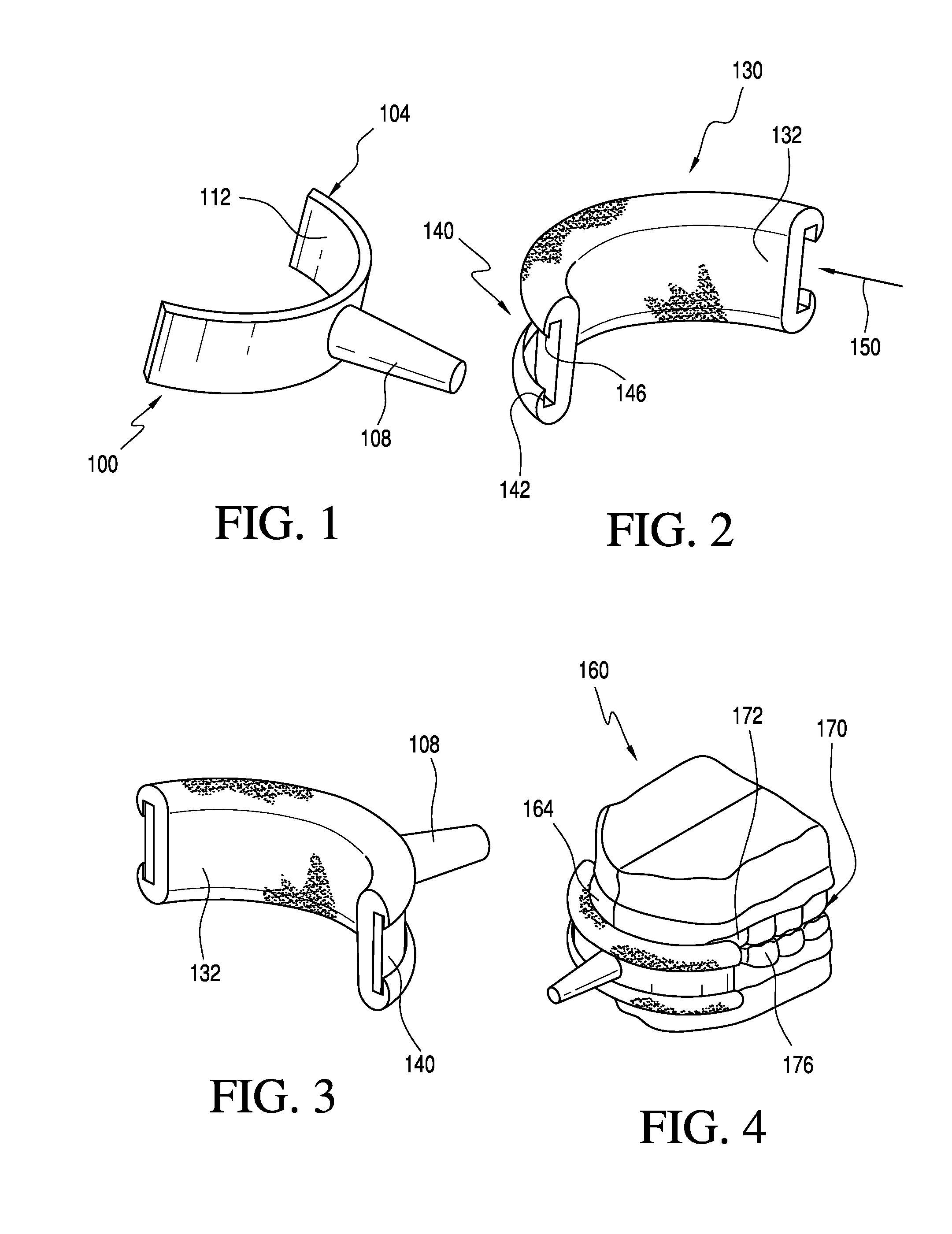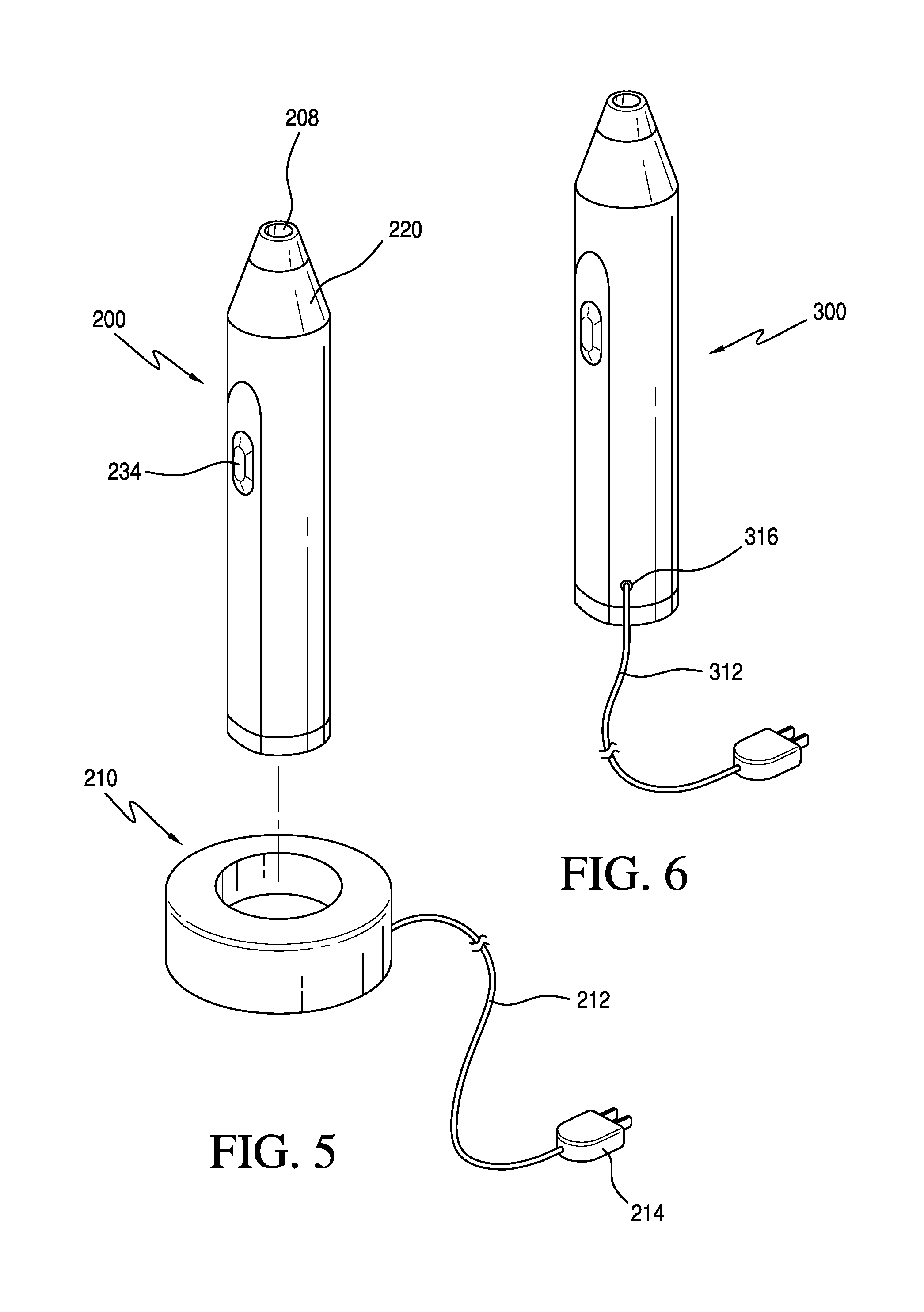Method and device for whitening teeth using sonochemistry
a technology of sonochemistry and whitening teeth, applied in the field of whitening teeth, can solve the problems of over 60% of users' tooth sensitivity, intrinsic staining cannot be removed by mechanical methods of tooth cleaning, and the initial and long-term tooth whitening experience is minimal, so as to avoid the killing of mouth flora and avoid the possibility of harming gums and mouth tissues
- Summary
- Abstract
- Description
- Claims
- Application Information
AI Technical Summary
Benefits of technology
Problems solved by technology
Method used
Image
Examples
Embodiment Construction
[0092]Embodiments of the invention are set forth in FIGS. 1-11.
[0093]A device for whitening teeth may include an ultrasonic horn. The ultrasonic horn 100 is configured for transmitting ultrasound energy into a tooth whitening composition that is activated by ultrasonic energy, or for providing a tooth whitening composition adjacent a user's teeth, or for both transmitting ultrasound into a liquid tooth whitening composition and providing a liquid tooth whitening composition adjacent a user's teeth, in use.
[0094]The tooth whitening horn 100 may be configured to include an arch-shaped surface 104 for ensuring that the tooth whitening composition held thereby is provided adjacent to one or more of the user's teeth. An insert 108, such as the illustrated male insert 108, may be used to attach horn 100 to an ultrasonic transducer or generator, as shown below in FIGS. 5-8. Insert 108 may be detachable. A free end 112 of horn 100 may be used to assist in detachably attaching a liquid retai...
PUM
 Login to View More
Login to View More Abstract
Description
Claims
Application Information
 Login to View More
Login to View More - R&D
- Intellectual Property
- Life Sciences
- Materials
- Tech Scout
- Unparalleled Data Quality
- Higher Quality Content
- 60% Fewer Hallucinations
Browse by: Latest US Patents, China's latest patents, Technical Efficacy Thesaurus, Application Domain, Technology Topic, Popular Technical Reports.
© 2025 PatSnap. All rights reserved.Legal|Privacy policy|Modern Slavery Act Transparency Statement|Sitemap|About US| Contact US: help@patsnap.com



